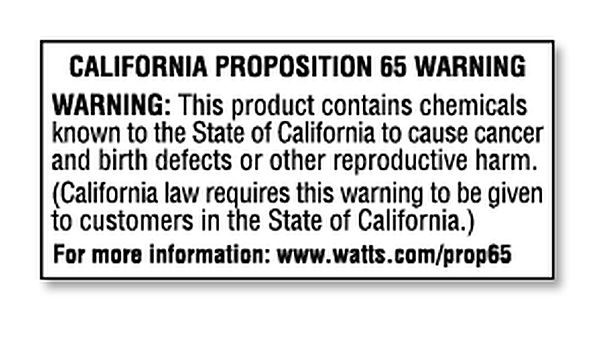While MMLG is on the cutting edge of all issues impacting the cannabis industry, we do not dispense legal advice on Proposition 65 and are providing this blog post for informational purposes only.
More and more clients have been asking about Proposition 65 and the new changes with regards to it that are going in effect on today (August 30th.) Yes, it’s been a scene reminiscent of “CEQA Part II, El Seugndo ‘Blue’galoo” at our new office. Compliance and licensing is what we do and that’s why we’re here to help you understand Prop. 65’s latest changes and what they mean for your business. Let’s dive into it.
What’s New With Proposition 65?
Proposition 65 has been around for over 30 years. Similar to how CEQA is in place to protect Californians and the environment alike from unchecked pollution or development, Prop. 65 was created to protect consumers from known carcinogens. Basically, if a product contains anything that’s a known carcinogen to humans, that product must be labeled with appropriate warnings. Ie, why coffee had its bizarre moment in the spotlight earlier this year.
So what’s new? Well, since 2009 “marijuana smoke” has been required by Prop. 65 to be listed as a known carcinogen. This should come as no surprise, as smoke from anything burning can cause irritation of the lungs, and many microscopic particles within any type of smoke are also carcinogens.
What has changed since ’09 is, of course, legalized adult-recreational use. MAUCRSA calls for medical and recreational cannabis to be tested and for all cannabis products –medical or recreational– to come with appropriate warning labels, including Prop. 65 warning labels.
Now, what’s really new? For starters, all warning labels will be required to list at least one of the known carcinogens within the product in question. Trust us, just because your product doesn’t contain “marijuana smoke,” it’s still likely containing something else that potentially causes cancers. But that’s not all, under the new requirements, warning labels must include:
- Text that says the product “can expose you to” a Proposition 65 chemical rather than saying the product “contains” the chemical
- A triangular yellow warning symbol on most warnings.
- For the most updated Prop. 65 info, head here.
This list is not exhaustive and other new changes may apply depending on your individual situation. We’re highlighting are examples of some of the changes impacting Proposition 65 warning labels.
Edibles and Myclobutanil
One cannabis vertical that you might think is in the clear and isn’t? Edibles. While from a definitional standpoint, edibles do not contain “marijuana smoke,” edibles do contain myclobutanil, a potent fungicide that’s been banned in several states and Canada. As you’ve likely guessed, it’s been banned because there’s a lot of evidence suggesting it’s a carcinogen. Intriguingly, much like carbofuran, another banned substance, finding its way into illegal grow sites in California, myclobutanil has shown up in several products from a federally-licensed company in Canada.
With consumer tastes shifting more and more towards edibles, this is a corner of the cannabis industry ripe for litigious action brought on by Prop. 65 violations.
What It Means For Your Business
Proposition 65 is tricky and technical stuff that can lead to lawsuits if it is not implemented correctly. At a minimum, you should take the time to check out the state’s website on the changes to Prop. 65 rules. You may also want to speak to your lawyers about what your company’s specific obligations are under Proposition 65. A good question to ask is if you are exempt from the Proposition 65 requirements [You are probably not. –Ed.] Furthermore, your obligations might change depending on if you are a retailer of cannabis products or if you are a manufacturer.
Also, make sure you’ve got your labeling and packaging requirements compliant. There is a cottage industry of plaintiff’s attorneys who make a nice living suing the cannabis industry for Proposition 65 violations. As our own director of compliance, Dr. Juli Crockett, explained via email, “Knowing that hundreds of these [Prop 65] notices have been sent, and that dispensaries are settling on average for $50K, it’s a [dang] good reason for operators to add the extra verbiage and cover their [rear ends]!”
We know it seems like splitting hairs and that maybe it seems even a little draconian, but this is the law. If you’re curious about what all you need to have on your labeling and packaging to meet compliance, get in touch with us: Facebook, Instagram, Email, Phone: 310.449.4528.

